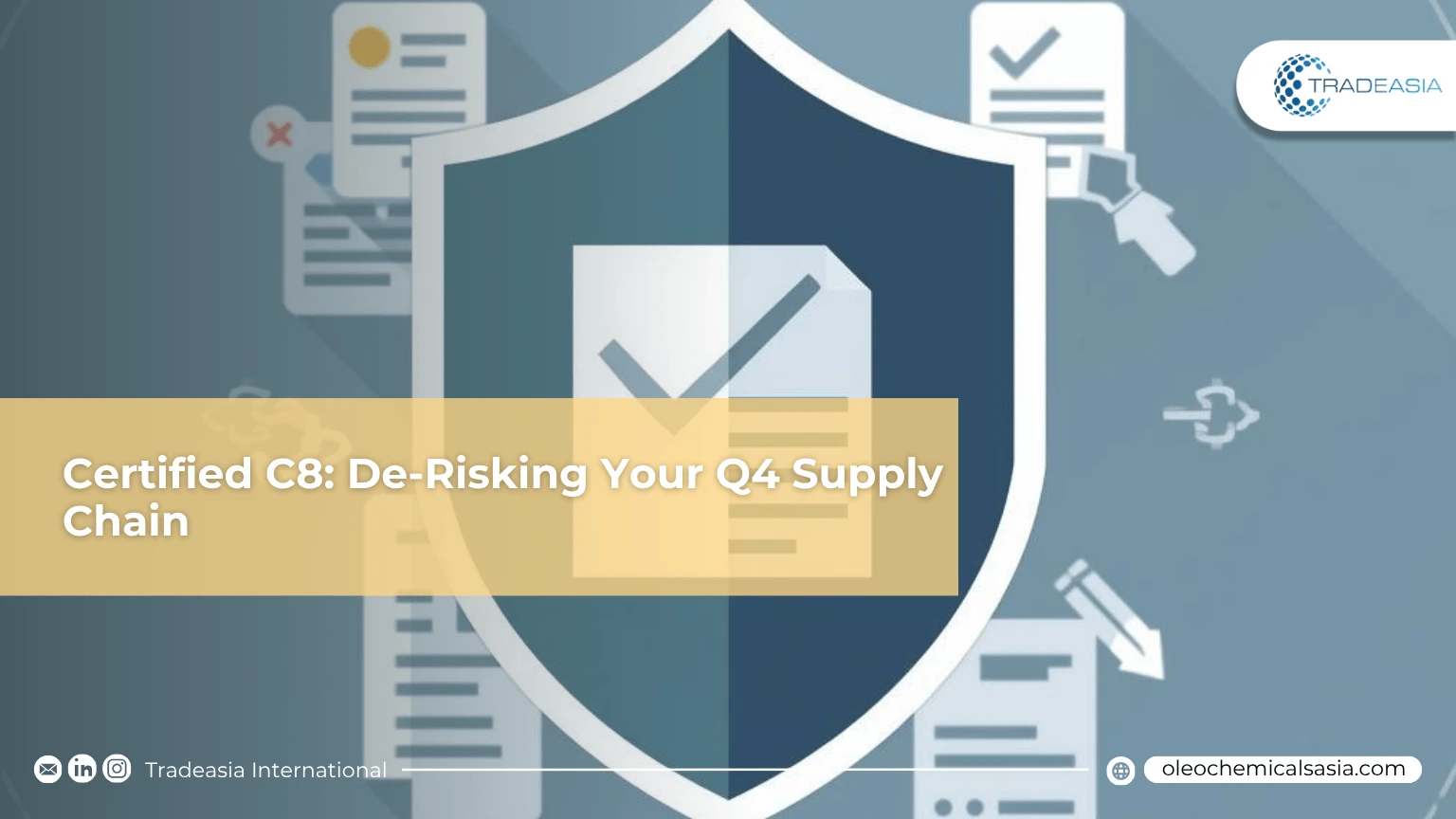The Certified Advantage: How Sustainable Methyl Caprylate De-Risks Your Q4 Supply Chain

Table of Content
- Navigating Regulatory Headwinds with Verified Sourcing
- Asia's Role in Delivering Global Compliance
The final quarter of 2025 has brought unprecedented focus onto supply chain transparency. For traders dealing in Methyl Caprylate (MC), a key derivative of Palm Kernel Oil (PKO), the debate is no longer about cost; it’s about compliance and market access. Securing MC that is demonstrably sustainable is the critical hedge against operational risk, especially with global environmental mandates intensifying.
Navigating Regulatory Headwinds with Verified Sourcing
The core of this challenge lies in verifiable sourcing. As major markets like the EU enforce strict regulations demanding granular proof of origin, the ability to trace PKO from the plantation to the final MC molecule is paramount. The latest figures from the RSPO Impact Update 2025 confirm that the certified oil palm area now spans over 5.2 million hectares globally. This scale, however, requires commitment from every player. Notably, membership in the Processor and/or Trader (P&T) category grew by 8.4% in the last reporting year, signaling that industry readiness is accelerating. For over two decades, those who master the intricate path from the palm to the final chemical product—ensuring both purity and provenance—have secured their competitive edge. This relentless push for certification is reflected in pricing: a November 2025 market analysis indicates that certified MC volumes command a price premium of 5% to 12% over uncertified equivalents, effectively rewarding de-risked trade. Furthermore, businesses with robust traceability systems have reported reducing supply disruption incidents by an average of 15% in this critical Q4 period.
Asia's Role in Delivering Global Compliance
The momentum is undeniably centered in Asia-Pacific, which holds the critical production base for this derivative. Insights referenced by Oleochemicals Asia reinforce that the growth of sustainable palm-based feedstocks is the main catalyst in the high-value oleochemicals space. This region is the linchpin of MC supply, necessitating partnerships with suppliers who can guarantee sustainable palm feedstock. To fully capitalize on this trend and ensure longevity in the market, providing customers with MC that meets these rigorous environmental and ethical standards is the only viable path forward. The compliance journey is difficult, but the reward is uninterrupted access to lucrative, high-value end-markets such as personal care.
Sources:
-
Oleochemicals Asia Market Insights: Trends in Sustainable Feedstocks
-
RSPO Impact Update 2025: Key Data on Certified Areas and Membership Growth
-
Specialty Oleochemicals Market Size | Industry Trend Report, 2027

Leave a Comment